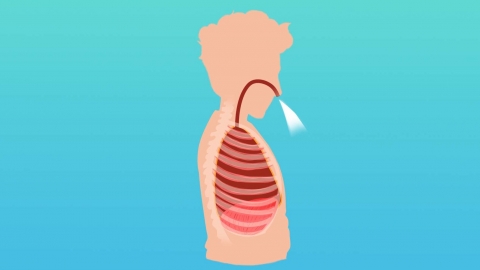What causes pleural effusion after surgery?
Under normal circumstances, postoperative pleural effusion may be caused by surgical trauma stimulation, limited activity due to bed rest after surgery, pulmonary infection, intrathoracic inflammation, atelectasis, and other reasons. If discomfort symptoms occur, it is recommended to seek timely medical evaluation and treatment at a正规 hospital. Specific analyses are as follows:

1. Surgical Trauma Stimulation
Surgical procedures can damage tissues within the thoracic cavity, causing local capillary rupture and bleeding, along with increased exudation of tissue fluid, resulting in small amounts of effusion. Patients may appropriately turn over in bed after surgery, and when their condition permits, should sit up or slowly get out of bed early to promote absorption of the effusion. At the same time, keep the surgical wound clean to prevent infection.
2. Limited Activity Due to Postoperative Bed Rest
Prolonged bed rest after surgery restricts lung expansion and reduces respiratory movement, leading to poor circulation of fluid within the thoracic cavity, which easily accumulates and forms effusion. Under medical guidance, gradually increase physical activity—such as standing beside the bed and slow walking—and extend daily activity duration appropriately to improve pulmonary ventilation and facilitate effusion drainage.
3. Pulmonary Infection
After surgery, reduced body resistance allows pathogens such as bacteria to invade the lungs and cause infection. Inflammatory stimulation increases exudate from lung tissue, which then seeps into the pleural cavity and forms effusion. Under a doctor’s guidance, medications such as amoxicillin-clavulanate potassium tablets, cefuroxime axetil tablets, or levofloxacin tablets may be taken. Additionally, perform effective coughing and deep breathing exercises to help expel sputum.
4. Intrathoracic Inflammation
Intrathoracic inflammation that occurs secondary to surgery can stimulate the pleura via inflammatory factors, increasing permeability of pleural capillaries and leading to fluid exudation and effusion formation. Under medical supervision, drugs such as azithromycin dispersible tablets, moxifloxacin hydrochloride tablets, or cefaclor capsules may be used. When necessary, thoracentesis with fluid drainage may be required.
5. Atelectasis
Postoperative mucus blockage of bronchi can lead to lung tissue collapse, abnormal pulmonary ventilation, changes in intrathoracic pressure, and subsequent fluid accumulation forming effusion. Timely suctioning via fiberoptic bronchoscopy should be performed to restore airway patency. Also, follow medical advice to take medications such as ambroxol hydrochloride oral solution, acetylcysteine granules, or carboxymethylcysteine oral solution to help liquefy sputum.
In daily life, patients should maintain warmth after surgery and avoid cold exposure; ensure indoor air circulation to reduce pathogen growth; perform prescribed respiratory function exercises such as blowing balloons or diaphragmatic breathing; undergo regular chest imaging follow-ups to monitor effusion changes; and maintain a light yet nutritious diet to enhance bodily immunity.






